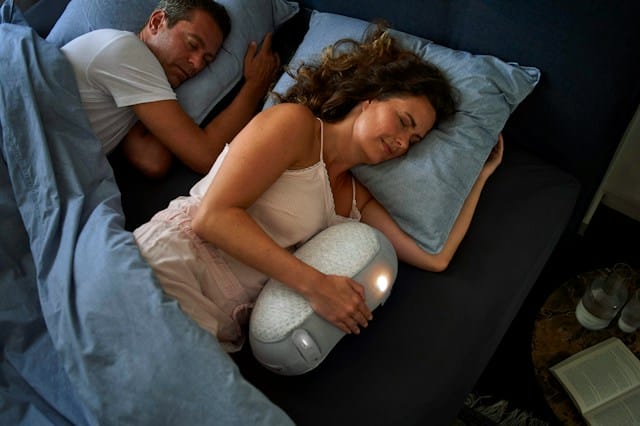Sleeping separately is a concept known as a “sleep divorce,” where couples opt for different bedrooms to enhance sleep quality. This idea has caught the interest of many, including renowned actress Cameron Diaz, who envisions having separate rooms within a family house for improved rest.
Sleep specialists advocate for separate sleeping arrangements.

Wendy Troxel notes a growing trend of couples choosing to sleep apart for improved overall health. The US Centers for Disease Control and Prevention links sleep deprivation to various health risks like diabetes, stroke, cardiovascular disease, and dementia.
Beyond the physical effects, Troxel highlights the emotional impact of sleep deprivation on relationships. Mood, frustration levels, tolerance, empathy, and communication all suffer. Dr. Raj Dasgupta, another sleep specialist, adds that sleep loss diminishes empathy and emotional regulation, leading to miscommunication during conflicts.
Reframe the concept into “sleep alliance.”

Although a sleep divorce may appear unconventional, Troxel suggests it can bring significant benefits. Research shows that well-rested individuals excel in communication, happiness, empathy, and humor—key qualities for building strong relationships.
Nevertheless, experts emphasize the importance of ruling out underlying sleep issues before considering a sleep divorce. Partners should actively identify potential problems like sleep apnea, restless legs syndrome, or medications causing insomnia. Instead of seeing it as a separation, Troxel recommends treating a potential sleep divorce as a “sleep alliance,” where a well-rested individual contributes to a healthier and happier relationship.
Experiment with various sleeping arrangements before sleeping separately.

For those committed to sharing a bed, coping strategies include elevating the head, using earplugs, sleeping with separate blankets, and trying different sleep schedules. Turning a snorer onto their side or utilizing FDA-approved devices may offer relief.
If all else fails, couples can contemplate separate bedrooms. Dr. Troxel recommends connecting through pre-bedtime rituals, quality time, and expressing gratitude. A “sleep divorce” doesn’t imply a permanent split; couples can tailor their sleep strategy to suit their individual preferences and needs.
Some individuals find it challenging to express their desire to sleep separately to their partners.

A Reddit user shared her bedtime routine with her early-rising husband. Despite not needing to wake up until 7 am, she joins him in bed at 4:30 am. Struggling to fall asleep, she silently retreats to the living room to scroll through social media. When tired, she returns to bed unnoticed, kissing him before finally sleeping. Surprisingly, she believes this routine has made him more affectionate.
She ponders whether to admit that her bedtime companionship is merely to please him. Surprisingly, many couples embrace separate sleep after cuddling, revealing a common practice.
In the end, the vitality of family dynamics depends on cultivating peace and ensuring everyone enjoys restful nights. Prioritizing relationships and well-being over traditional sleep norms is crucial. Open communication, mutual understanding, and a joint commitment to comfort play pivotal roles in fostering a healthy family life.
